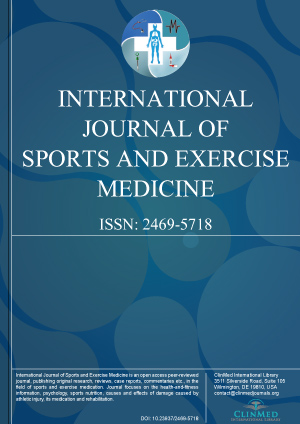Open Access DOI:10.23937/2469-5718/1510052
Breathe Long, Live Long
Carl C Bell and Joseph A Kurian
Article Type: Short Commentary | First Published: February 28, 2017
Using ancient wisdom, personal experience, and modern 21st century science can help researchers understand and design scientific inquiry that will lead to useful and pragmatic research agendas. This approach is illustrated by the observations made by Taoist beliefs, the senior author's personal experience, and the scientific literature on how resting heart rates promote longevity....
Open Access DOI:10.23937/2469-5718/1510051
Vacuum Sealing Drainage for Treating Early Infection after Total Hip Arthroplasty
Tao Liu, Fujiang Cao, Yunqiang Xu and Shiqing Feng
Article Type: Research Article | First Published: February 14, 2017
Surgical site infections (SSIs) can have a profound impact on patients as they often require hospital readmission, additional surgical interventions, lengthy intravenous antibiotic administration, and delayed rehabilitation. Negative pressure wound therapy (NPWT) exposes the wound site to negative pressure, resulting in the improvement of blood supply, removal of excess fluid, and stimulation of cellular proliferation of granulation tissue....
Open Access DOI:10.23937/2469-5718/1510050
The Effect of High-Speed Resistance Training on Movement Speed and Power of Older Women
Celia Cohen Barros, Celia Pereira Caldas and Luiz Alberto Batista
Article Type: Research Article | First Published: February 13, 2017
The relationship between physical fitness and functional capacity in the aging process is notable. Functional capacity determines the degree of independence to remain socially included and its decline is an effective indicator of poor quality of life. Significant scientific evidence support that an active lifestyle helps to prevent and minimize the negative effects of aging. Physical exercise is an important goal for Health Promotion....
Open Access DOI:10.23937/2469-5718/1510049
Predicting V̇O2 Change from a Single Unidirectional Trial of Cadence Manipulation in Recreational Runners
Thomas Ruediger and Ryan Dombkowski
Article Type: Original Article | First Published: February 10, 2017
The study protocol was approved by the University's Institutional Review Board. Subjects of either gender were recruited by convenience from a local cohort of graduate students or by direct association or relationship with this cohort. Subjects self-identified themselves as recreational runners logging at least 10 miles per week, free of any neuromuscular or neurological disorders, lacking any joint or limb pain or discomfort, and willing to sign the informed consent document....

